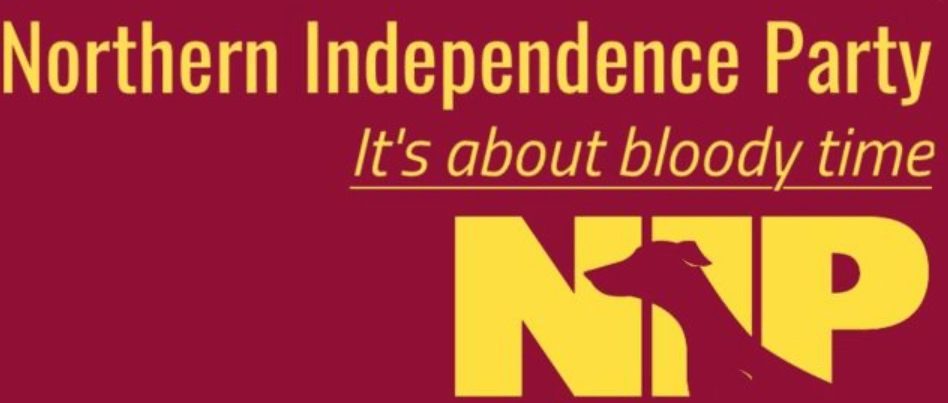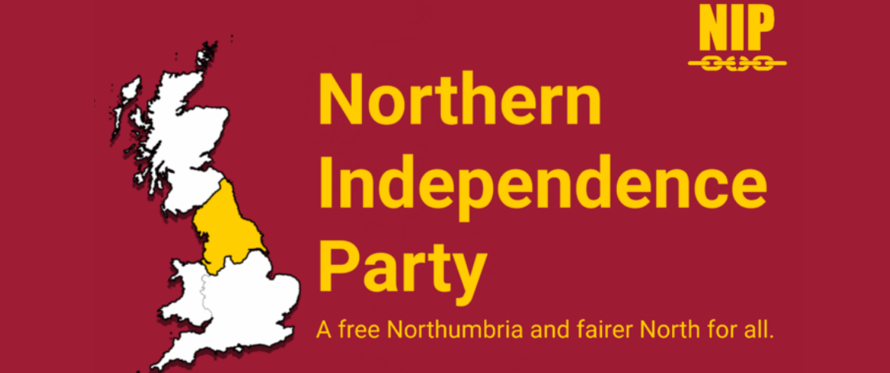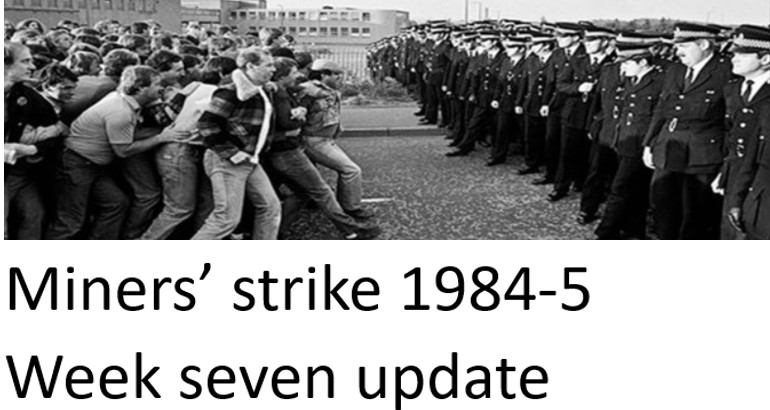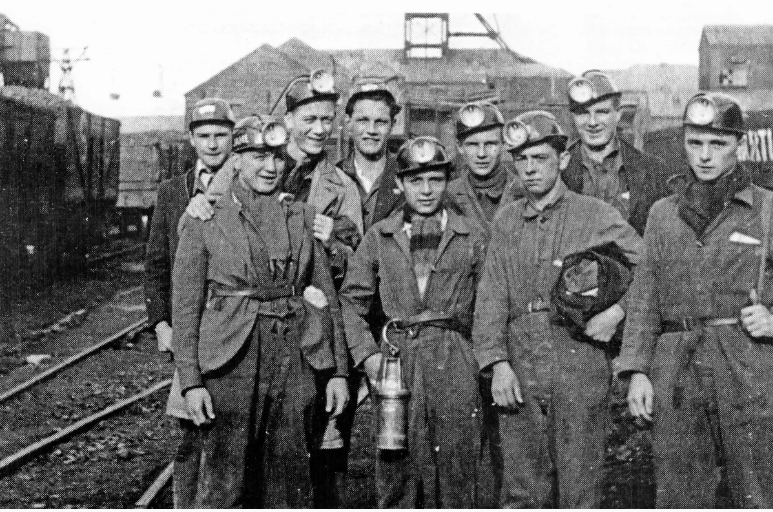By John Pickard, (ex-Gateshead)
In the forthcoming local elections in England and in the Hartlepool by-election, there will be many voters who will be wanting to give Starmer’s Tory-lite ‘Labour’ Party a bloody nose. And who can blame them, especially now that there is another means of doing just that, in the form of the Northern Independence Party?
Having seen the Northern region de-industrialised and under-developed for decades and having seen a succession of right-wing Labour governments and councils doing nothing about it, the traditional support of Northern voters for Labour has been understandably brought into question.
The NIP is a new party, launched six months ago, and it is standing a candidate – a former Labour MP – in the Hartlepool parliamentary by-election on May 6. In the coming months and years, it might stand other candidates in local and parliamentary elections.
It has been given uncritical air-time by Novara Media and in a long article in Red Pepper (November 12) and although social media is a long way from being the best guide, it is making some waves here too, particularly among dissident members and supporters of Labour. “The Westminster elite” the party grandly announced In Red Pepper, “will not quench our collective thirst for freedom, autonomy, and sovereignty”.
Under-development and left-phraseology
We could not deny for one moment that there is a feeling among many workers in the North of England that they feel ‘left behind’ by Westminster, or that there is a perception that the richer areas of London and the south-east are getting special treatment. As it happens, most supporters and readers of Left Horizons live in the North, so we understand what the issues are, in terms of de-industrialisation and economic under-development.
But what the NIP offers in response to that is an illusion. The answer to the rich bankers in London and the south-east isn’t to walk away from them; it is to take over their wealth and use it for the good of everyone, North and South. The Red Pepper article by the NIP is full of radical-sounding phraseology, mixing a smattering of northern history, with righteous indignation about the treatment of the North in recent times. It trots out a list of radical northerners from the past who were involved the struggles for a better society and against slavery, for example.
It doesn’t list the names of the slave-traders, or the coal-owners or industrialists who exploited children as young as five years old – who were every bit as ‘northern’ as their heroes. These northern exploiters of northern labour even built their mansions in the likes of Durham and Yorkshire (many open today for tourists), long before they had ever heard of Chelsea.
Pockets of poverty in the South, ‘our allies’
The faux radicalism of the NIP extends even to its ‘internationalism’ and it boasts of the great diversity of the North. Acknowledging, almost in passing, the fact that there are many pockets of poverty and deprivation in the South of England, it says, “We know too that the struggles of Hackney and Blyth Valley are one”. But then comes the inexplicably silly conclusion, “We say to our allies in the South: join us! We need you – help us build a Free North!” In other words, “we love you so much that we are going to divorce you”…Or “we feel your pain so much, that we are going to leave you in the hands of Southern Tories”.

In fact, although it is a bit of a cliché to the cynic, it is a truism: that an NHS worker in the Newcastle General Hospital has more in common with a Filipino nurse working in St Thomas’ Hospital London, than either of them has with their trust manager. A factory worker in the Hunslet Engine works in Leeds has more in common with a worker in Cube Precision in Birmingham than either of them have with their factory bosses.
When it comes to the economy, the policy of the NIP can be summed up as a simplistically this: “the answer to deprivation is independence”. They claim that “The North will take control of its assets and enable common ownership over the wealth they produce”. Rich in wind and tidal power, they say, with a population of around 15 million and an economy “roughly the size of Sweden”, Northumbria will be beacon of green socialism. “Together”, they declare, “we will break the chains of Westminster. Together we will create a free and fair Northumbria”.
The rationale for ‘independence’ disappears
These policy statements roll off the tongue so easily that you could easily imagine them happening next year or the year after. Why didn’t anyone think of this before? But nowhere is there any thought given to what it would mean politically, how it would come about for all the big companies (including all the banks) in ‘Northumbria’ to be nationalised and for there to be a (state-owned) northern investment bank, or something like it. The only way that this could possibly be brought about would be by a massive movement, not only of the working class in the North, but through a movement of millions of workers across the whole of Britain. In which case, the whole rationale of Northern ‘independence’ disappears.
The crisis of British capitalism is such that big political convulsions on this kind of scale will take place, as they are already taking in place in other countries of the world. But they will happen on an international and on a national scale, not confined to the borders of one or two regions. Whatever might be the verbal ‘solidarity’ being expressed towards deprived areas of the South, in fact the NIP is insulting and writing off the entire labour movement of southern England as no-hopers and of no account.
Then again, even if this wonderful mirage of the NIP had any substance, voters would necessarily be asking follow-up questions. Like, what will be the national currency? Will taxation be the same, or less? Where will the capital be? Leeds? Manchester? Newcastle? Or will there be a fight over it?
Regional and local autonomy…and its limits
How will the People’s Socialist Republic of Northumbria integrate itself with the rest of this large island on which we live? Will transport, mail services, education, health and utilities all be in public hands and not mostly privatised, as they are now? Then how will these utilities and transport systems integrate with the rest of Britain? How does it affect someone getting a train from Kings Cross to Edinburgh, entering ‘Northumbria’ and then leaving it on the other side?
In a British socialist state, there would naturally be the greatest possible regional and local autonomy on all social and economic issues. A heavy bias in terms of investment and wealth – such as we now have towards London – would be actively worked against. That is a given. But it is also true that some aspects of the economy are better planned and managed on a large scale, ‘nationally’ in other words, and sometimes even internationally.
It is indeed a disgrace that Boris Johnson is prepared to throw a hundred billion pounds at a ‘High Speed’ train, just so business travellers from Birmingham can get to London twenty minutes earlier – while the transport systems of the North are allowed to rot. But having said that, the best way to manage the transport system of Britain is nationally. That also goes for the power grid, water networks and many other things besides. How will creating a new international border do anything even remotely useful regarding these things?
A statelet, unviable economically and politically
The map the Northern Independence Party shows has a border based on the ancient Danish kingdom of ‘Northumbria’, embracing Cheshire, Lancashire, Yorkshire, Durham, Northumberland, Cumbria and all the metropolitan counties they contain. All kinds of geographical anomalies arise from this arbitrary map, so that it includes affluent areas like Richmond, in North Yorkshire, but not much poorer areas a few miles to the South, like Nottingham or Bolsover.
The article in Red Pepper even acknowledges that the idea of “The North” is a “slippery concept”. “For this reason,” they explain, “we respect the rights of anyone in ‘border territories’ to join us subject to a local referendum”. All very well, but what about areas not in the ‘border territories?
What if the Metropolitan County of Tyne and Wear, for example, opted out, and remained surrounded by ‘Northumbria’ in the form of Northumberland and Durham? What if one county opted out? What if one city opted out? Would the democracy of the NIP stretch far enough to allow enclaves within its territory? No-one knows, not even the NIP.
The only reason the initial plan includes the relatively large area of ancient Northumbria, is that the founders of the party have a vague understanding that their ‘nation’ needs a critical mass – in terms of area and population – even to sound remotely sensible. But even including the whole of ancient Northumbria – all the land north of the Humber up to the Scottish border – it would represent a statelet completely unviable economically and politically.
“Never trust the River People”
My father used to warn me not to trust people ‘up in Windy Nook’, a part of Gateshead three miles from where we lived. My grandmother, raised in Northumberland, laughingly used to tell me about her mother warning her, “Never trust the River People!”, meaning the people along the banks of the Tyne.

These might be funny little anecdotes, but are these really the kind of ‘principles’ on which we should build a movement to change society? In fact, the real underlying philosophy of the Northern Independence Party is parochialism writ large. A serious political movement cannot be based only on regional ill-feeling. Poverty and under-development are not matters of geography, they are issues of class.
As the NIP admits, there are large areas of social deprivation and under-development in the South of England, as there are prosperous and pampered parts in the North. If the deprivation in the North is to be addressed – and it needs to be – it will be through the same movement that is fighting against poverty and deprivation in the South. It will be through a unified workers’ movement.
It is an illusion of the worst kind – a monstrous lie and a deceit – to suggest that the best line of march for the working class is to break up the capitalist state into a patchwork of statelets, as if that solves anything. It is capitalism that is the problem, not the geographic boundaries in which it functions.
Right-wing Labour leaders have let them down
Capitalism is in a crisis globally, and a feature of that crisis is that millions of workers, women and youth are groping for answers to their day-to-day needs. They feel – understandably – that the traditional political parties have let them down, particularly the so-called workers’ parties.
It is beyond question that the right-wing Labour leadership of Starmer, with his Tory-lite approach, has alienated millions of workers. Likewise, at a local level, where right-wing Labour councillors are remote from real public scrutiny, they have failed to offer any way out for working people. But the answer to this is a protracted struggle to recapture the labour movement for socialism, not to walk away from it, to find a ‘cleaner’ banner.
In many countries, like Spain, Italy, Belgium, Scotland and elsewhere, the alienation from the establishment parties and the searching for new solutions has led millions of workers to embrace separatism and nationalism. It is understandable that this is the case, but it is nonetheless an entirely reactionary development.
Where there are strong historical and social roots to nationhood, as in Scotland and Wales, for example, a shift towards nationalism is more clearly understood. But where an entirely new and artificial ‘nationalism’ has been created, the result is a caricature of a national movement. Such is the Northern Independence Party.
The trajectory of all nationalist parties is to the right
Like every other nationalist party in history, the NIP has donned, for the moment, a gloss of ‘radicalism’. It is an essential component of the veneer of all nationalist parties, and it is essential to seek mass support. But once the radical screen is seen through, the natural trajectory of all nationalist parties is towards the right, and the pettier the nationalism, the faster the trajectory.
The pity of it is that the NIP’s radical veneer may combine with the utter failure of the Starmer/Evans leadership of the Labour Party to turn the heads of many good Labour members and supporters. What these Labour dissidents do not understand is that the Labour Party should not be judged by its leadership alone and that its links to the wider trade union movement give it a potential and a future that goes far beyond the current right-wing leadership. By walking away from the Labour Party and not embarking on a serious fight inside it, they are doing the wrong thing, albeit for the right motives.
A protest vote for NIP might be understandable, but the best answer to the Tories who have devastated and de-industrialised the North, and to the Labour right-wing who have allowed it to happen, is to fight for serious political change where it really matters, in the broader labour and trade union movement. No-one says it is a quick and easy fix, but it is the only long-term fight that matters.
NIP targeting Labour marginal seats – thereby helping the Tories
In the short-term at least, the NIP may do some damage to Labour, particularly, as in Hartlepool, where Labour puts forward such awful candidates. In the Novara Media interview, the NIP spokesman even said they were targeting marginal seats, in other words aiming to split the Labour vote, thereby helping only the Tories.
The NIP will be helped by the mainstream media, who are always happy to see damage done to the Labour Party. It is to that extent – and to that extent only – that the NIP will be given the oxygen of free publicity by very same neo-liberal capitalist media the NIP claim to despise. They will be also helped by the middle-class, trendy socialists of the likes of Red Pepper and Novara Media, who do not have the stomach for a long and sustained struggle for socialism where it counts, dirtying their hands in the workers’ movement.
Masquerading as a ‘radical’ party now, the NIP will be a magnet for every kind of flag-waving crank, from the ultra-left to the ultra-right, as it feeds on the disillusionment of working people. All the bar-room lawyers, the Nigel Farage wannabes and multifarious keyboard warriors will be rushing to join in the new game. In return, the NIP will feed its monstrous illusions. For genuine socialists, unfortunately, it is yet one more source of splits and division within the working-class movement, and something with which we will need to contend.
See previous articles on Hartlepool and the local elections, here, here and here.



